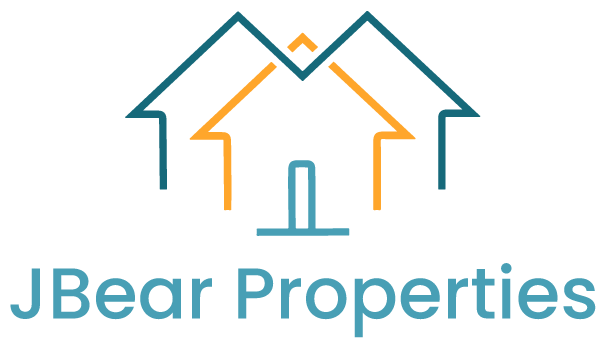When diving into the world of property ownership, understanding the terms “freehold” and “leasehold” is crucial. These terms dictate not only the nature of ownership but also your rights and responsibilities as a property owner. In this blog post, we will explore the concept of freehold ownership, its advantages and disadvantages what it means for potential home buyers.
Contents
- 1 What is a Freehold?
- 2 Advantages of Freehold Ownership
- 3 Disadvantages of Freehold Ownership
- 4 Freehold vs. Leasehold: Key Differences
- 5 Special Types of Freehold
- 6 Legal Considerations for Freehold Properties
- 7 Freehold in Different Regions of the UK
- 8 Recent Issues and Developments in Freehold Ownership
What is a Freehold?
Freehold ownership means you own the property and the land it sits on indefinitely. Unlike leasehold, where the property is leased for a certain period (often up to 99 years or more), freehold ownership gives you complete control over both the building and the land. You don’t pay ground rent or service charges there are no restrictions on what you can do with the property—subject, of course, to local planning laws.

Advantages of Freehold Ownership
Complete Control and Autonomy: Understanding what a freehold is, is essential when considering the benefits of property ownership, especially in terms of selling. As a freeholder, you have total control over your property, which can make it more attractive when selling. You can modify, renovate, or expand your home as you see fit, as long as you adhere to local planning and building regulations.
This level of autonomy not only allows you to customise your home to perfectly match your needs but also enhances its appeal and market value when you decide to sell, as potential buyers often prefer properties with fewer restrictions. Unlike leasehold properties, you do not need a landlord’s approval for changes, making the selling process more straightforward and appealing to a broader range of buyers.

No Ground Rent or Service Charges: One of the main benefits when considering what is a freehold is the lack of additional costs like ground rent or service charges. These fees can significantly increase the annual expenses of owning a leasehold property. With a freehold, you don’t have these extra financial burdens, leading to substantial savings over time.
Long-term Investment Security: When you understand what is a freehold, you realise it’s often viewed as a more secure investment. Unlike leasehold properties, where the value can decline as the lease term shortens, freehold properties tend to maintain or even appreciate in value over time. This makes them a more stable and potentially profitable long-term investment.
Disadvantages of Freehold Ownership
Higher Initial Cost: When considering what is a freehold, it’s important to recognise that freehold properties generally have a higher initial cost compared to leasehold properties. This can pose a challenge for first-time buyers or those entering the property market with limited financial resources, as the upfront expenses can be a significant barrier.
Full Responsibility for Maintenance: Understanding what is a freehold also means recognising that with this type of ownership, you assume full responsibility for the maintenance and upkeep of both the property and the land it occupies. This includes everything from structural repairs to maintaining gardens and other outdoor spaces. These responsibilities can be both time-consuming and costly, particularly if major repairs are needed.
Freehold vs. Leasehold: Key Differences
To further clarify what freehold means, it’s useful to compare it with leasehold, the other main type of property ownership in the UK.

Special Types of Freehold
In certain cases, especially in blocks of flats, you may encounter the term “share of freehold.” This arrangement means that the owners of the individual flats share the freehold of the entire building. While this offers more control over communal areas and decision-making, it also requires cooperation and collective decision-making with other freeholders.
Flying Freehold
A flying freehold occurs when part of a property overhangs or projects over land that does not form part of the freehold title. This is commonly found in properties built over shared entrances or archways. While it doesn’t necessarily complicate the ownership, it may require specific legal considerations and agreements with neighbouring property owners.
Legal Considerations for Freehold Properties
When exploring what is a freehold, it’s crucial to understand the legal considerations involved in buying a freehold property. Here are some key points to keep in mind:
- Title is Clear: Ensure the property’s title is clear, free from any disputes or claims that could affect your ownership. Knowing what is a freehold also means understanding the importance of a clean title in securing your property rights.
- Local Searches and Surveys: Conducting thorough searches and surveys is essential to identify any local restrictions, planning issues, or environmental concerns that could impact your freehold property. This step is crucial to avoid any unforeseen complications down the line.
- Compliance with Local Laws: While understanding what is a freehold gives you a sense of autonomy over your property, it is important to remember that any modifications or developments must still comply with local planning laws and statutory obligations.
Freehold in Different Regions of the UK
While the basic idea of what is a freehold remains the same across the UK, there are some regional variations to be aware of:
- England and Wales: In these regions, freehold ownership is most common for houses but less so for flats. Freeholders have complete control over their property, aligning with the understanding of what is a freehold.
- Scotland: The Scottish equivalent of freehold is known as “feuhold,” and nearly all properties are feuhold. The buying process in Scotland differs significantly from the rest of the UK, so it’s essential for prospective buyers to understand both what is a freehold and the nuances of the Scottish legal system.
- Northern Ireland: Here, freehold ownership operates similarly to that in England and Wales, providing complete control and autonomy over both the property and the land it occupies, reinforcing the concept of what is a freehold.

Recent Issues and Developments in Freehold Ownership
In recent years, there have been concerns about new-build properties being sold with complex or unfair leasehold terms. In some cases, developers have sold the freehold to third-party companies, leading to escalating ground rents and restrictive terms for the leaseholders. This practice has drawn significant media attention and led to legislative changes aimed at protecting buyers.
For freehold properties, the key is to conduct due diligence. Ensure that your conveyancing solicitor thoroughly checks all documentation, especially if you are buying a new build or a property with potential restrictive covenants.
Choosing between freehold and leasehold depends on your individual circumstances, financial situation and long-term plans. Freehold offers complete control, freedom from additional fees and security of tenure. However, it also comes with full responsibility for maintenance and higher initial costs.
If you’re looking for a property that provides long-term security, potential value appreciation complete autonomy, a freehold might be the right choice. However, if you prefer shared amenities and lower upfront costs, leasehold might suit your needs better. Always consult with a professional conveyancer or solicitor to make an informed decision that aligns with your goals.
Related articles




